
Become a member
Join today and help protect nature, beauty and history – for everyone, for ever. Enjoy access to more than 500 places with National Trust membership.
Intriguing Elizabethan lodge and moated garden
Lyveden, near Oundle, Northamptonshire, PE8 5AT
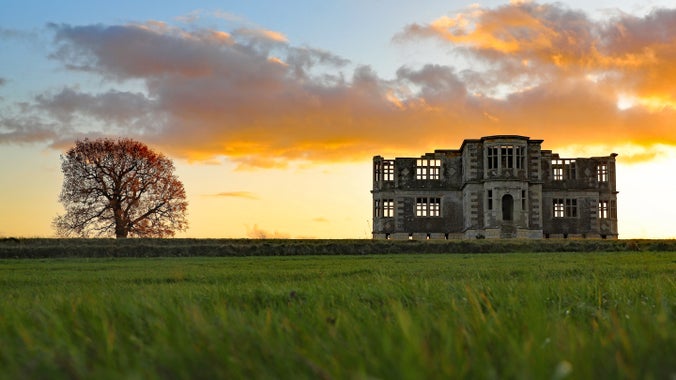
| M | T | W | T | F | S | S |
|---|---|---|---|---|---|---|
Open
Closed
| Asset | Opening time |
|---|---|
| Lyveden | 10:00 - 17:00 |
| Lyveden manor café | 10:00 - 16:30 |
| Ticket type | With Gift Aid | Without Gift Aid |
|---|---|---|
| Adult (18+) | £13.20 | £12.00 |
| Child (5-17) under 5s free | £6.60 | £6.00 |
| Family (2 Adults and up to 3 children) | £33.00 | £30.00 |
| Family One Adult | £19.80 | £18.00 |
| Group (Adult 18+) | £10.80 | |
| Group (Child 5-17) | £5.40 |
Accessible parking: 100 yards. Partly accessible grounds, grass and uneven paths, limited benches around the site. Accessible toilet located at the manor. Designated accessible parking available close to visitor reception. Limited availability of mobility scooter hire.
Braille guide available from Visitor Reception
Uneven grass paths throughout the site
Powered mobility vehicle and manual wheelchair available for visitors
Events at Lyveden this Spring.
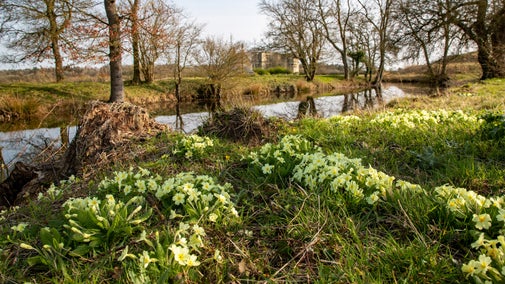
This guide provides detailed information to help you plan your visit and make the most of your time at Lyveden.

Lyveden is a three pawprint rated place. Dogs kept on short leads are welcome throughout the garden at Lyveden and on the ground floor of the Manor. Share your day with your dog as you explore woodland and the Northamptonshire countryside together.

Step inside the manor to discover Lyveden's intriguing story in the exhibition space or relax with a book in the 'Common Room'.
Lyveden's unfinished Elizabethan lodge is filled with symbolism that only Tresham's Catholic contemporaries would have understood.
A rare Elizabethan relic and one of the country’s oldest garden landscapes. Complete with terraces, spiral mounts, moats and orchard.
Light lunches, sandwiches, drinks and homemade cakes are available in the café. There is seating both inside and outside. Dogs are welcome.
The garden and lodge are surrounded by restored hay meadows. Providing food and shelter to pollinating insects, birds and small mammals.
Lovingly curated by our volunteers, you're bound to find your next page-turner nestled on the shelves of our second-hand bookshop.
February Half Term at Lyveden
Explore the historic landscaped garden at Lyveden through your phone camera lens this February half term. The self-guided trail gives you tips on how to take the best photos and some suggested subjects to spot. What memories will you capture?

With a manor house to see, plan your visit here, with historical talks, information on the garden design and our temporary exhibition space there's plenty to see and do.
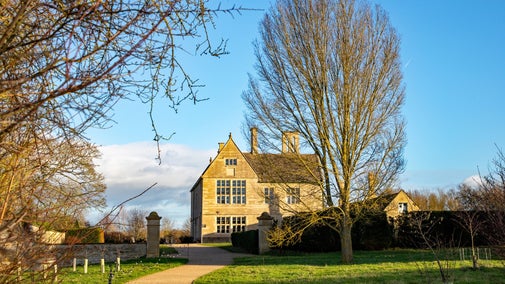
From making friends with a bug to adventures in the great outdoors, there's something for everyone at Lyveden.
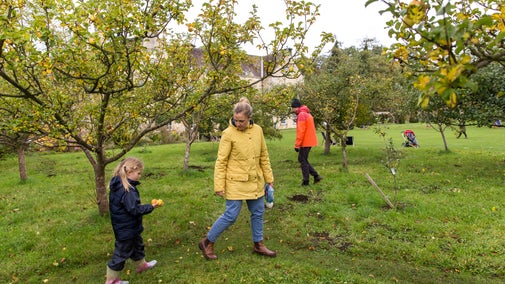
With a garden to explore, seasonal highlights to discover and an audio guide to learn the story of Tresham’s unfinished house, there’s lots to do at Lyveden.

The café in the Grade I-listed manor serves a range of hot and cold drinks, light meals, snacks and cakes to keep you refreshed during your visit. Take a seat indoors or enjoy your cuppa in the outdoor seating area.

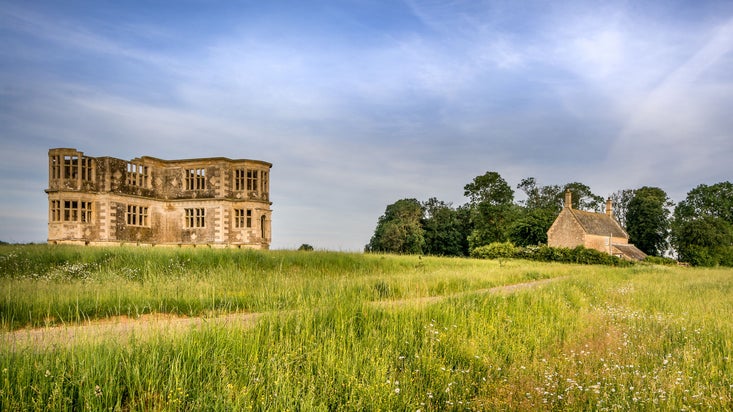
Mystery, beauty, and the peace of forgotten places surround this cottage in the Northamptonshire countryside.
Visit our exhibition upstairs in the Manor showcasing the work of local artists on the theme of landscape.
Discover the fundamentals of watercolour painting with Something Less Boring.
Join our Guided Walk leaders for a monthly social walk, beginning at Lyveden and then heading off into the beautiful Northamptonshire countryside.
Discover the calming, creative joy of working with clay in our cosy café. No experience or artistic skills necessary.
Celebrate Mother's Day with an afternoon tea in the Manor Café and a guided tour of the site with our knowledgeable volunteers.
Experience the vibrant world of coloured pencil art in Something Less Boring's two-session workshop.
This spring Lyveden will be buzzing , treat the whole family to an adventure into the wonderful world of pollinators on the Easter trail.
Set in the heart of rural Northamptonshire, Lyveden is a remarkable survivor of the Elizabethan age.
Begun by Sir Thomas Tresham to symbolise his Catholic faith, Lyveden remains incomplete and virtually unaltered since work stopped on his death in 1605.
There are tranquil moats, viewing terraces and an Elizabethan orchard to explore, as well as an enigmatic garden lodge covered in religious symbols. The full extent of Sir Thomas's symbolic design remains unexplained to this day.
Our audio guide describes Sir Thomas’s dream and how it all ended in a nightmare for the Tresham family with their involvement in the Gunpowder Plot.
Lyveden is also the perfect starting point to explore the Lyveden Way, a circular path through beautiful meadows, woodland and villages.
Discover how religious persecution, treason and debt stopped Tresham’s vision from being fulfilled and why Lyveden stands as a reminder of his act of quiet and creative rebellion.
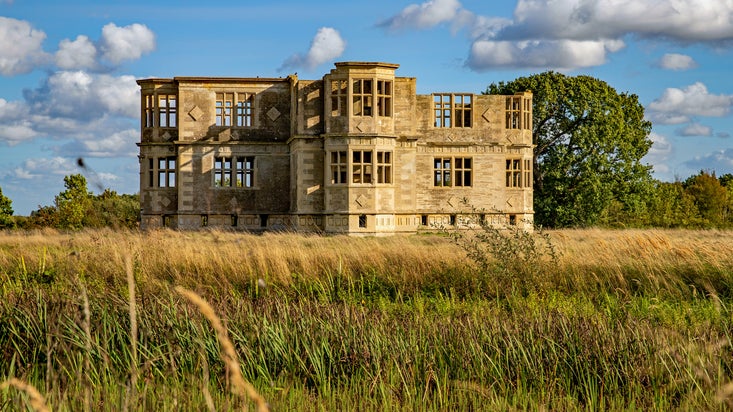
Find out more about our work at Lyveden, from restoring lost areas of the garden to using archaeology to reveal Lyveden’s secrets.

Find out more about volunteering at Lyveden. By joining the team, you'll help bring to life the stories of this intriguing Elizabethan lodge.
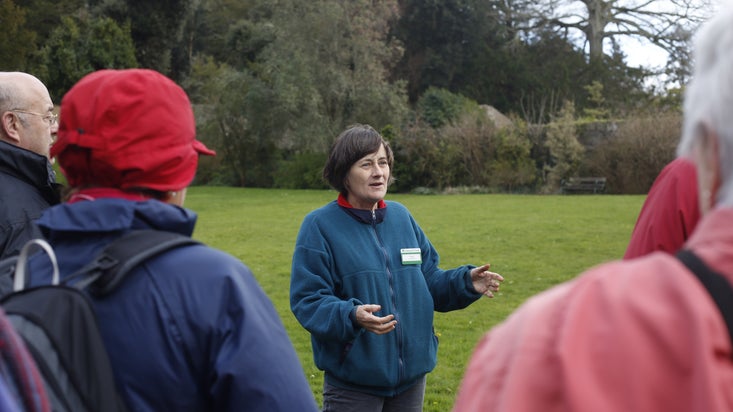

Join today and help protect nature, beauty and history – for everyone, for ever. Enjoy access to more than 500 places with National Trust membership.
By sharing your email address you’re agreeing to receive marketing emails from the National Trust and confirm you’re 18 years old or over. Please see our for more information on how we look after your personal data.